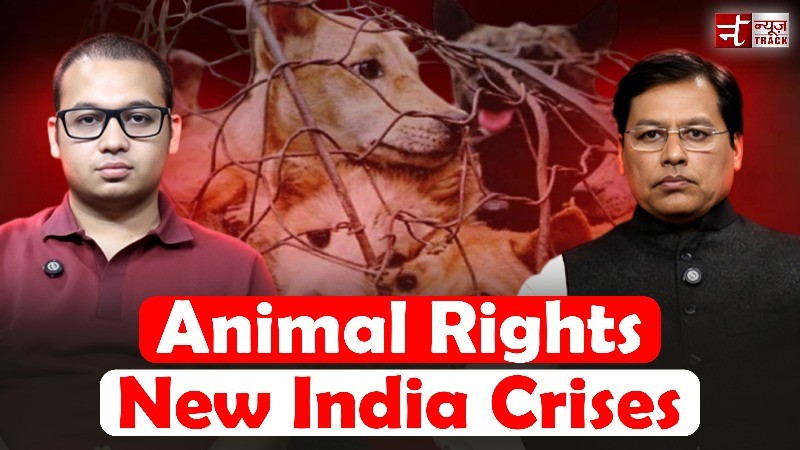
They come crawling to you as you come back home, soon becoming family, then following you in every walk of life. Animals are loving, caring, and even more understanding than humans are! They shower an unconditional love on their pet parent, serving their master with loyalty and trust. Only demanding a little love and warmth in return. In our recent podcast at Newstrack Infomedia, Dr. Sandeep Nanavati, Professor and Head of the LPM Department at Mhow Veterinary College, talks about 'paw friends' and their loving relationship with humans.
There is a significant difference in the IQ levels of humans and pet animals. The cerebral hemisphere between the two differs. Yet, there is an established understanding. Humans these days are involved in showsha, jealousy, competition, and in their selfish motives. Dr. Nanavati states that this is contrary to animals. Just by giving a little love, food, and comfort, you mean the world to them.
Of course, there is an established understanding between a master and his pet, but how can one know that the animal is not doing well? A child can express himself by speaking, or if not, by crying to his mother. But a pet cannot. Dr. Nanavati gives a simple answer, "After a while, within one or two years, a fostering connection develops between the pet and its caretaker or master. There is an expression in the eyes, where one can talk and understand the other without any words. The ones closely associated observe the change."
Adding, "You will find your pet's snout dry and the eyes seemingly dull and lifeless than usual. They aren't lively, happy, and stop eating for a while. More visible symptoms include vomiting, diarrhea, cough, and cold, and hair loss. That's when one should opt for primary treatment and consult a veterinarian. But it's the one who takes care of the pet who will ultimately understand it best.
There are animals adopted as pets by families, but there are still countless strays roaming around. The question is, how can one help these stray animals? Dr. Nanavati says, "If you spot a stray animal, and want to save it or do something as a part of the cause, you can approach an NGO, or a social activist working towards this. They are well-connected with the authorities as well as hospitals, and work tirelessly for animal rights and safety. Even in the villages in Madhya Pradesh, you can dial 1962, and you will have a doctor and an ambulance at your service for the primary treatment of livestock. One can also take the animal to State-run hospitals or contact a visiting Veterinarian."
Whether it is a stray or your pet, one can ensure its safety and care just by doing the basics. Your brain might operate differently, but it is the language of love that connects humans and animals!